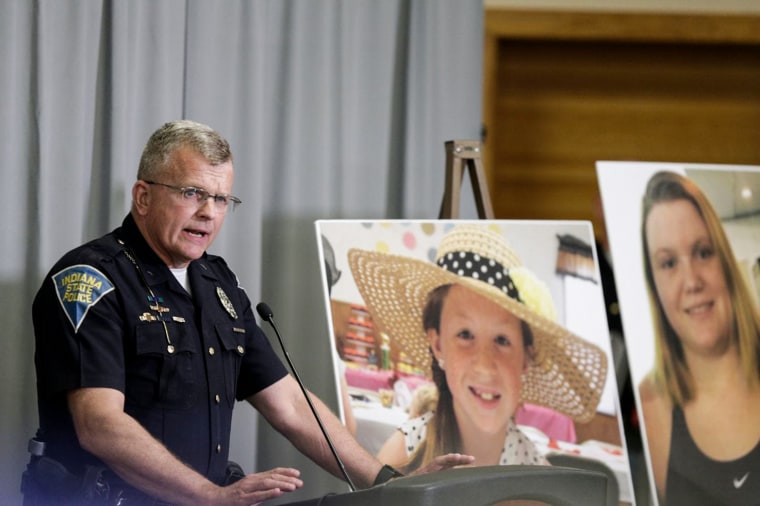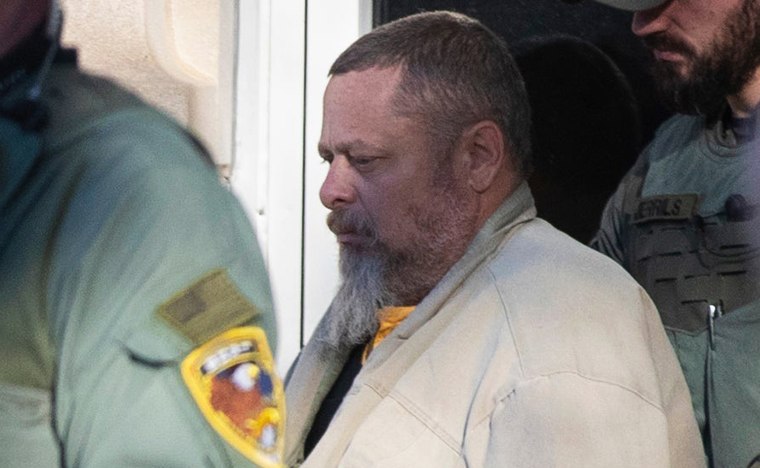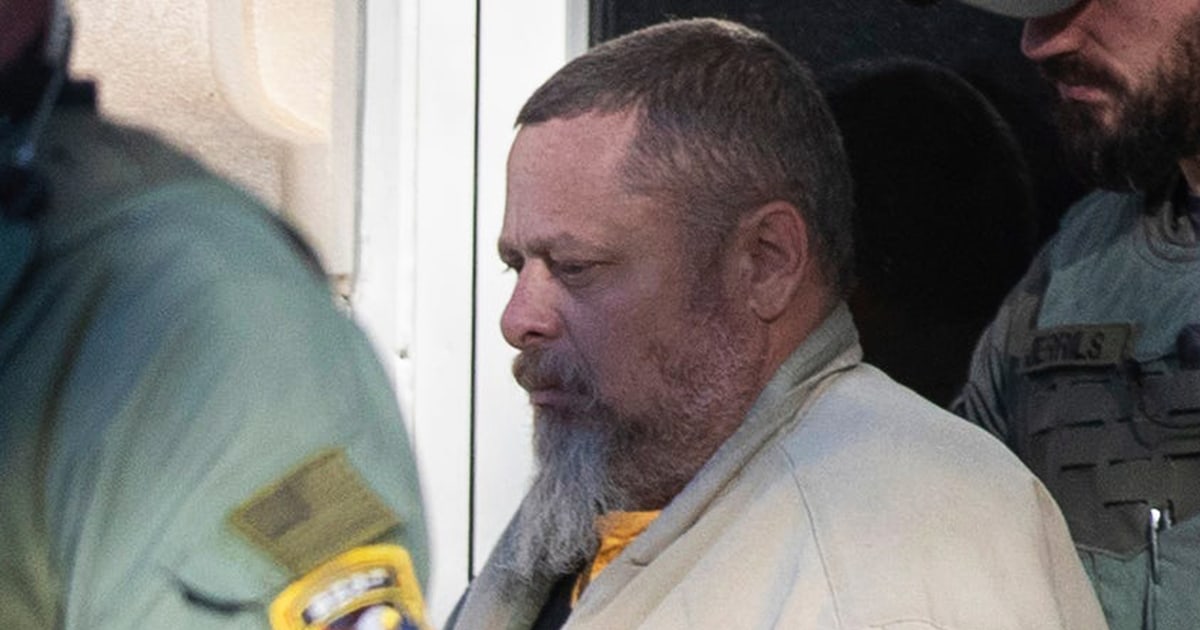The deaths of Indiana teenagers Abigail “Abby” Williams and Liberty “Libby” German while strolling and taking pictures on a trail in early 2017 went without an arrest for more than five years.
That was, until late 2022, when a pharmacy technician and married father named Richard Allen was charged in the crime that rattled the small community of Delphi, about 60 miles northwest of Indianapolis.
Before then, the search for who killed the best friends had dragged on. Even a haunting clue that investigators said was retrieved from Libby’s cellphone — sparking interest from internet sleuths because it appeared to show the suspect — only deepened a mystery.
The bodies of Abby, 13, and Libby, 14, who were eighth-graders at Delphi Community Middle School, were found a day after their families said they went missing while hiking together near an abandoned rail bridge. The girls were fatally stabbed, according to court documents.
Allen’s lawyers maintain he is innocent, saying after his arrest: “Rick has nothing to hide.”
And now, as the trial of Allen, 52, on double murder charges began with jury selection on Monday, the answers to multiple questions and tangled connections may finally come to light.
Why details are limited
Judge Frances Gull issued a gag order in December 2022, after Allen’s lawyers spoke out in defense of their client. At the time, a probable cause affidavit was unsealed claiming a bullet found near Abby’s and Libby’s bodies was linked to a gun belonging to the suspect.
Carroll County prosecutors sought the gag order amid intense media coverage, and it has prevented nearly everyone associated with the case, including lawyers, law enforcement and family members, from speaking publicly.
But the defense also asked for the trial to be held outside of Caroll County, arguing the potential of a “tainted jury pool.” Gull denied that request but agreed to allow the jury pool to come from Allen County, more than 100 miles away.
After jury selection this week in the Allen County seat of Fort Wayne, the trial will continue in Carroll County and could last about a month as jurors are sequestered. Gull has ordered no video or audio from inside the courtroom and banned the use of electronics.
Allen, who has remained incarcerated while awaiting trial, faces two counts of murder and two counts of felony murder in the teens’ deaths. If found guilty, he could face up to 130 years in prison.

Alleged confessions
One highly anticipated facet of the trial is what motive prosecutors will posit as part of their case against Allen, whose lawyers have said he “has never been arrested nor accused of any crime in his entire life.”
For years, state police had no named suspect, instead occasionally imploring the public for help by releasing bits of information, including audio and images taken from a video found on Libby’s cellphone. The phone was found underneath her body, according to the probable cause affidavit.
The audio was of a male voice who could be heard saying, “Guys, down the hill.”
While the clip garnered interest on social media and among true crime followers, it didn’t produce a viable lead. Police later released more from the video, including of a person wearing a dark jacket and jeans they believed was their suspect walking near the Delphi Historic Trail. One of the girls can also be heard in the video, saying, “Gun.”
In the arrest affidavit, police confirmed they initially interviewed Allen in 2017 as part of the case, and they said he acknowledged being on the trail on the day the teens went missing.
In June 2023, hundreds of pages of documents in the case were unsealed, revealing that an imprisoned Allen allegedly confessed to his wife in a phone call a couple of months earlier that he committed the murders.
Prosecutors also said he confessed to others, including staff and inmates at the maximum-security state prison where he was being held.
But his lawyers responded in a separate document that he “appeared to be suffering from various psychotic symptoms which counsel would describe as schizophrenic and delusional.” They also said Allen seemed to have memory loss and “an overall inability to communicate rationally with counsel and family members.”
The attorneys noted that this behavior was different from how he normally interacted.
But while Allen’s defense is expected to counter any evidence of an alleged confession, his lawyers, Andrew Baldwin and Bradley Rozzi, won’t get to tell the jury one alternate theory for the killings. Gull last month denied their bid to claim Abby and Libby were murdered as part of a ritualistic sacrifice by those linked to Odinism, a Norse pagan religion that has spread among white nationalist groups.
While the defense said in a memo that details from the crime scene may suggest some type of occult practice, Gull ultimately found that “the probative value of such evidence is greatly outweighed by confusion of the issues and its potential to mislead the jury.”
Carroll County prosecutor Nick McLeland downplayed the Odinism theory as a “fanciful defense for social media to devour.”
Defense lawyers, however, may still get to argue during the trial why certain evidence is admissible.

Visiting the crime scene
The judge must still decide a defense request for jurors to visit the crime scene, arguing that doing so would “greatly aid” their understanding of what will be presented at trial.
Going there would help in “observing and feeling the unique topography of the land; something that cannot be understood from photographs and video,” defense lawyers wrote in their motion.
Prosecutors have objected to the move, in part because of security concerns. Gull said she would rule on it after jury selection.
Meanwhile, the local courtroom in Caroll County is expected to be packed with supporters of the victims when the trial begins. In the community of Delphi, home to about 3,000 people, Abby has been remembered for being an avid reader, who enjoyed playing with her cat Bongo and on her middle school’s volleyball team, while Libby also loved sports, painting and going on vacations with her family.
Abby’s obituary said, “she and her good friend Libby were looking forward to planning their next 4 years of school together.”
Libby’s grandfather, Mike Patty, told reporters following Allen’s arrest in October 2022 that the families’ quest for justice was only beginning.
“I just know that there’s another job, another hill for us to climb ahead of us,” Patty said. “But we’re up for the challenge, and we’re going to keep after it. We’re not going to stop.”

Leave a Reply